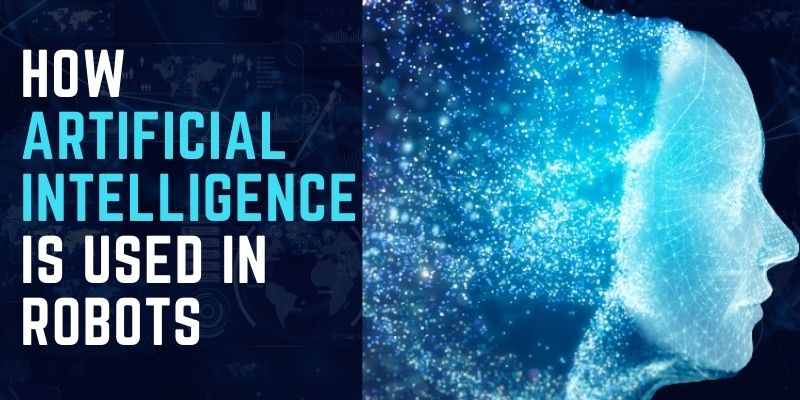
Both robotics and AI are the most influential for automating the industry task. In recent decades, artificial intelligence use in robotics solutions has increased. Artificial intelligence has become common in robotic solutions in recent years, bringing adaptability and abilities to previously rigid uses. This blog will discuss How Artificial Intelligence Is Used In Robots.
Although Artificial Intelligence is still in its early phases, it has proven to be a disruptive technology for some industrial fields, albeit numerous have yet to feel the result.
Getting knowledge in using artificial intelligence in robotics by enrolling in Artificial Intelligence Course in Chennai to get top-grade technical training from real-time professionals.
Robotics and Artificial Intelligence
Artificial Intelligence (AI) has become a game-changer in the robotics industry, revolutionizing the way machines perform tasks with efficiency, accuracy, and adaptability. In the modern production sector, AI-driven robots are increasingly being utilized for automation, reducing human effort while improving speed and precision. Industries such as manufacturing, healthcare, and logistics are leveraging AI-powered robotics to enhance productivity and streamline operations.
Assembly Section
In robotic assembly operations, Artificial Intelligence plays a crucial role in optimizing efficiency and accuracy. AI-powered robots can analyze and adapt to their environment, making real-time adjustments during assembly processes. When integrated with enhanced vision systems, AI can assist in dynamically altering the course of action, which is particularly valuable in complex industrial sectors like aerospace and automotive manufacturing. Additionally, AI enables robots to learn from previous tasks, refining their approach over time and enhancing overall productivity. This self-learning capability helps in reducing errors and improving the quality of production while minimizing waste.
Quality Control
AI-driven robotics is also transforming quality control processes in manufacturing industries. By utilizing computer vision and machine learning algorithms, robots can inspect products for defects with unparalleled accuracy. Unlike manual inspections, which are time-consuming and prone to human error, AI-powered robots can analyze vast amounts of data in real-time, ensuring that only high-quality products reach the market. This level of precision helps businesses maintain high production standards while reducing operational costs. As a result, artificial intelligence is important for a productive industry, allowing manufacturers to maintain efficiency and consistency.
Packaging
Logistics and Warehouse Automation
AI-driven robots are transforming logistics and warehouse management by automating processes such as inventory tracking, sorting, and transportation. Intelligent robots equipped with AI algorithms can analyze real-time data, optimize storage space, and even predict demand patterns. This capability allows businesses to manage their supply chains more effectively while reducing operational costs. Companies like Amazon and Walmart have already integrated AI-powered robots into their warehouses to streamline order fulfillment and enhance customer satisfaction.
Note: Getting hands-on experience in AI technology with the support of Artificial Intelligence Online Course at FITA Academy with Certification.
Customer Support
Robots are already being deployed in customer support in businesses, IT sectors, and hotels all around the globe to provide client care. The use of artificial intelligence in robotics is increased. The majority of these robots use AI’s natural language processing capabilities to engage with clients in a more human-like manner. The more interaction with humans these systems have, the further they learn.
Open Source Robotics
A few robotics artificial intelligence capabilities are open-source solutions. Users can educate their robots to perform specialized activities related to their use, such as tiny agriculture. In the evolution of Artificial Intelligence robots, merging robotics and AI could be a huge trend. Robots are sharper, more precise, and more productive when they collaborate. AI hasn’t even come close to realizing its maximum potential, but as it does, robotics will follow behind.
Conclusion:
Artificial intelligence (AI) plays a crucial role in the advancement of robotics, enabling machines to perform complex tasks with greater efficiency and autonomy. AI-powered robots are transforming various industries, including healthcare, manufacturing, and logistics, by enhancing automation and decision-making processes. These intelligent systems utilize machine learning, computer vision, and natural language processing to interact with their environment and adapt to new challenges.
For those interested in gaining expertise in this field, enrolling in an Artificial Intelligence Course in Bangalore can provide in-depth knowledge and hands-on training. Such courses cover essential AI concepts, including neural networks, deep learning, and robotics applications, helping individuals develop the skills needed to build and program AI-driven robotic systems. With the growing demand for AI professionals, acquiring specialized training can open up numerous career opportunities in this rapidly evolving domain.
Also Check: What are the Applications of Artificial Intelligence?
